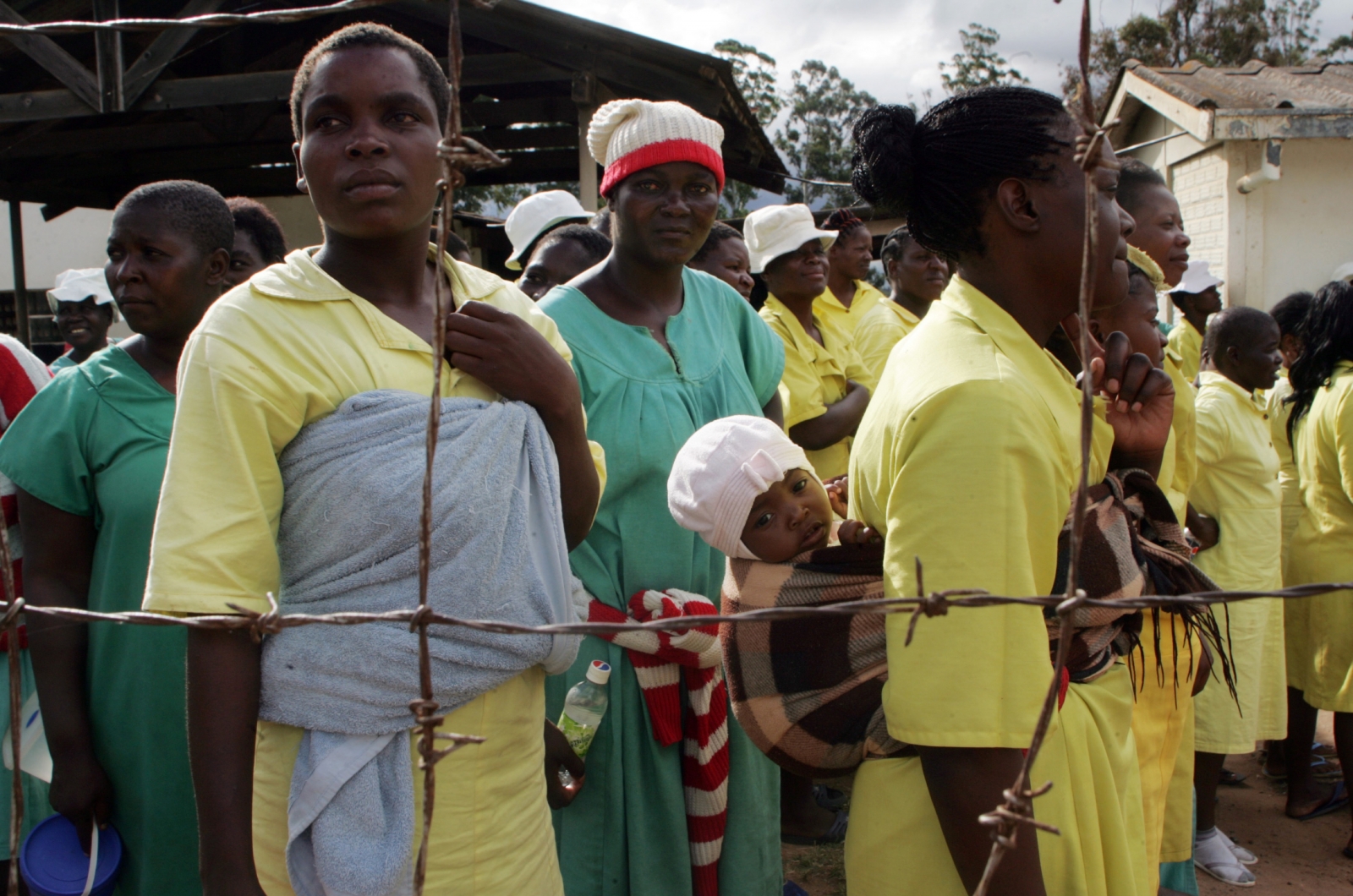
“In the endless moments that I spent in the cells at Highlands police station, I did not imagine that I could ever be in a worse place. That was before Chikurubi. As it turns out, hell is other people, especially when those other people are your fellow women prisoners and there has been no water for a week and flies are buzzing over the gamashura and the only ablution possible is to run a dry towel across your body, hoping that the dirt and smell will somehow be absorbed by as inadequate an object as a prison-issue towel with a visible thread count”
Petina Gappah, The Book of Memory: A Novel
This is the Republic of Chikurubi, aka Zimbabwe. Robert Mugabe pardoned more than 2000 prisoners this week: “The amnesty has freed all convicted female prisoners … leaving Chikurubi Female Prison literally empty. Only two females serving life sentences have been left behind.” No one was freed, but they were released from prison, and the prison is not literally empty, both because there are still women prisoners inside and because we have been here before and we know Chikurubi is not empty until Chikurubi is torn down once and for all.
These prisoners were sent home ostensibly because the prisons are overcrowded, but the prisons in Zimbabwe have always been overcrowded and toxic. In 2013, the Deputy Commissioner of the Zimbabwe Prisons and Correctional Services reported that 100 or so prisoners had died that year due to lack of food and medication. They died slowly, starving and writhing in pain, and so in February 2014, Robert Mugabe “freed” thousands of prisoners. In 2009, Robert Mugabe “freed” 2,513 prisoners, due to overcrowding.
Meanwhile, Chikurubi still stands. Built by Rhodesia in 1970, the year that entity declared itself a republic, and maintained since by Zimbabwe, from the first day to today, Chikurubi has been “notorious for its filthy, freezing and overcrowded cells infested by maggots and rats.” It’s the one constant, and that’s why Zimbabwe is truly the Republic of Chikurubi. Half the population dies of starvation one year, and there’s barely a murmur. A two-year old child, Nigel Mutemagawo, is abducted and held in custody for 76 days. He was held in Chikurubi Maximum Security Prison for close to two weeks: “Medical reports show that during his abduction and continued detention for charges of banditry and terrorism, two year-old Nigel was assaulted and denied food and medical attention by his captors.” He was two years old. Prominent human rights and women’s rights advocates, such as Jestina Mukoko, are tortured in Chikurubi. What of it? Women like Rebecca Mafukeni are denied access to necessary medication and die in Chikurubi. Too bad. Rosemary Margaret Khumalo, affectionately known as Makhumalo, died, waiting for the new Constitution to be followed. Bad luck.
While it’s a relief to the women and their families and friends and communities to no longer have to sit in the hellhole that is Chikurubi, the flies are still buzzing over the gamashura. Don’t call it freedom. There is no freedom in the Republic of Chikurubi until the Chikurubi prison is destroyed, first the buildings and then structures. Don’t fix it; be done with it. Chikurubi = death. #ChikurubiMustFall
(Photo Credit: International Business Times / Jekesai Nijikizana /AFP /Getty Images)
